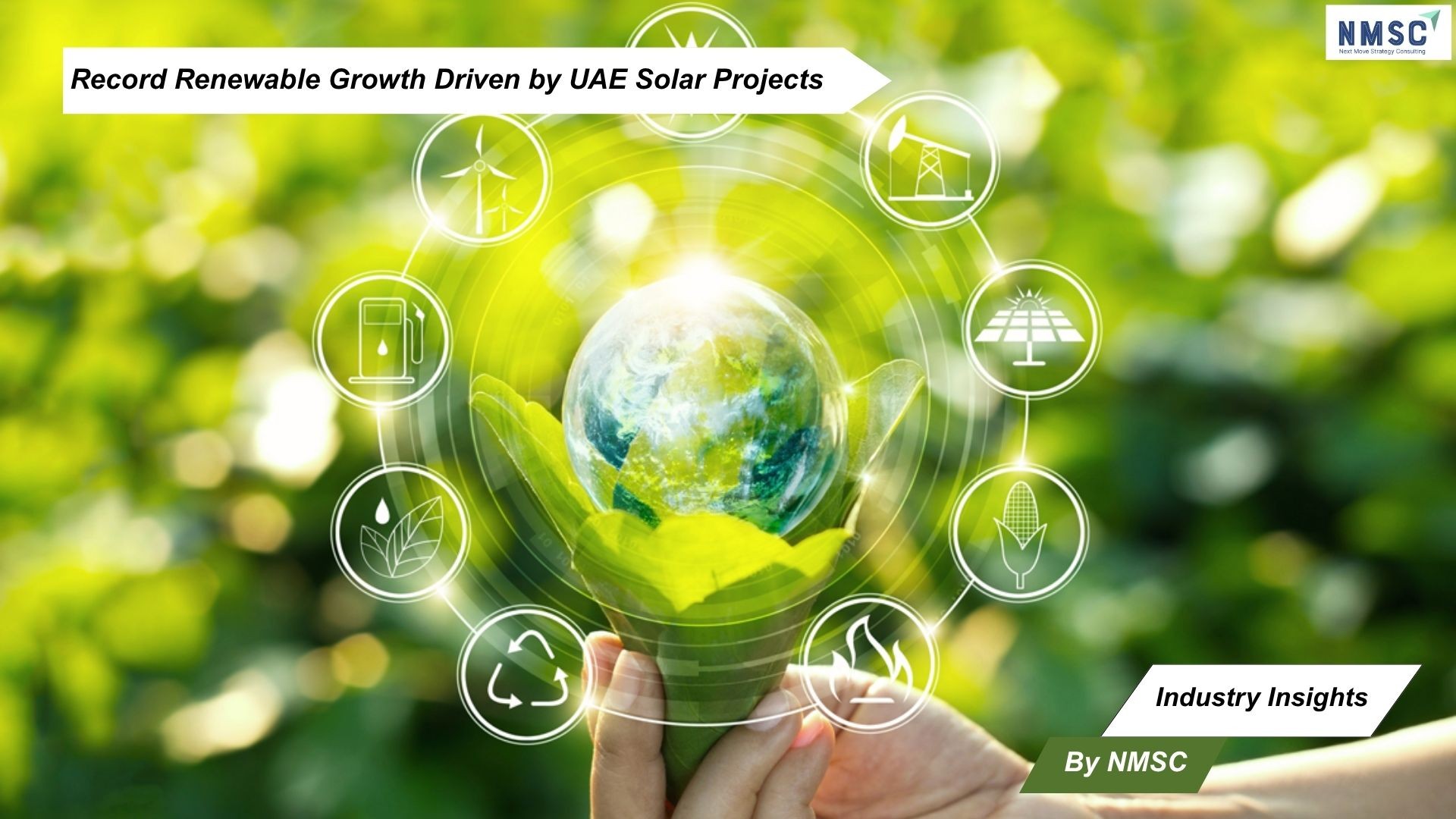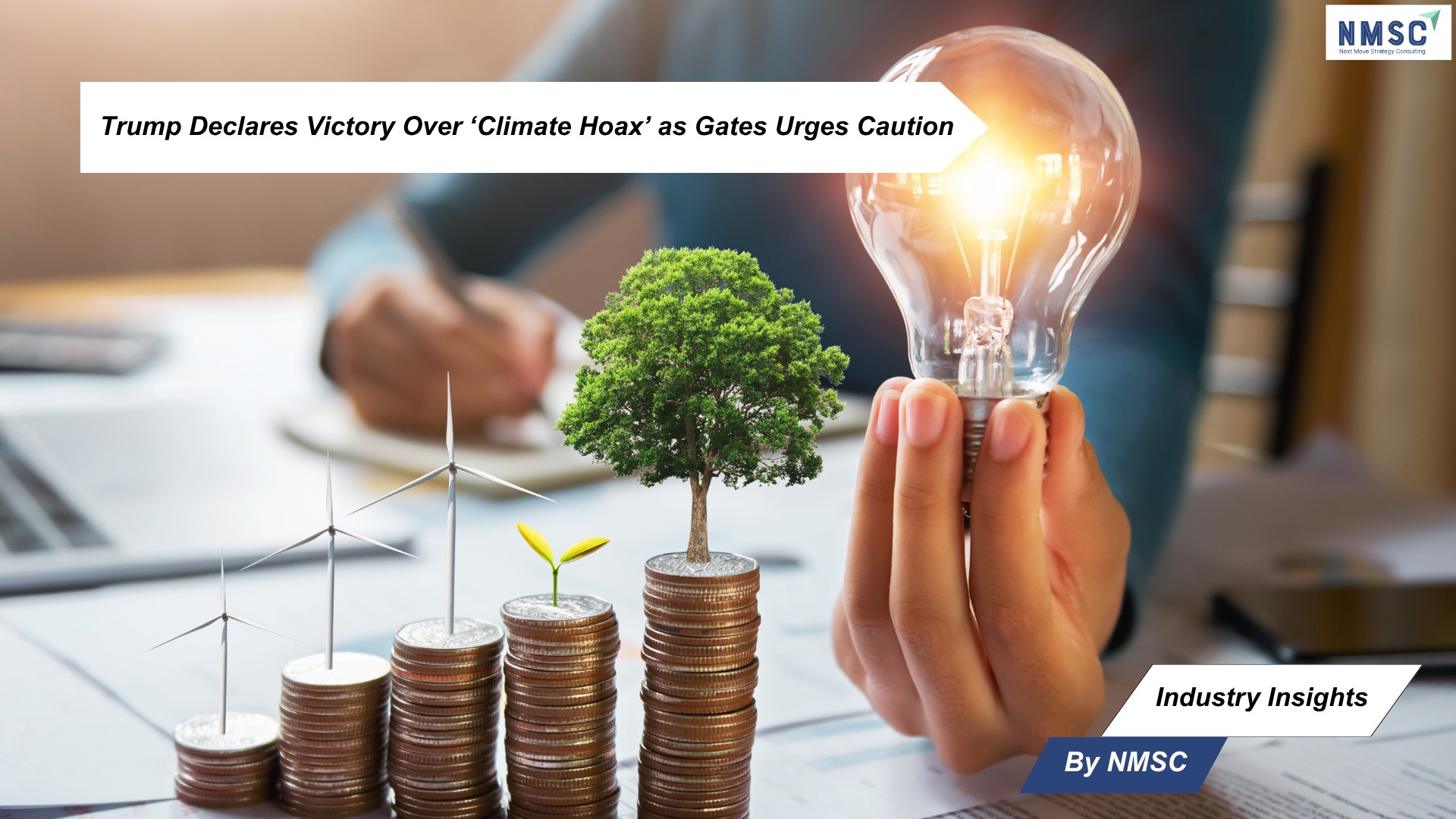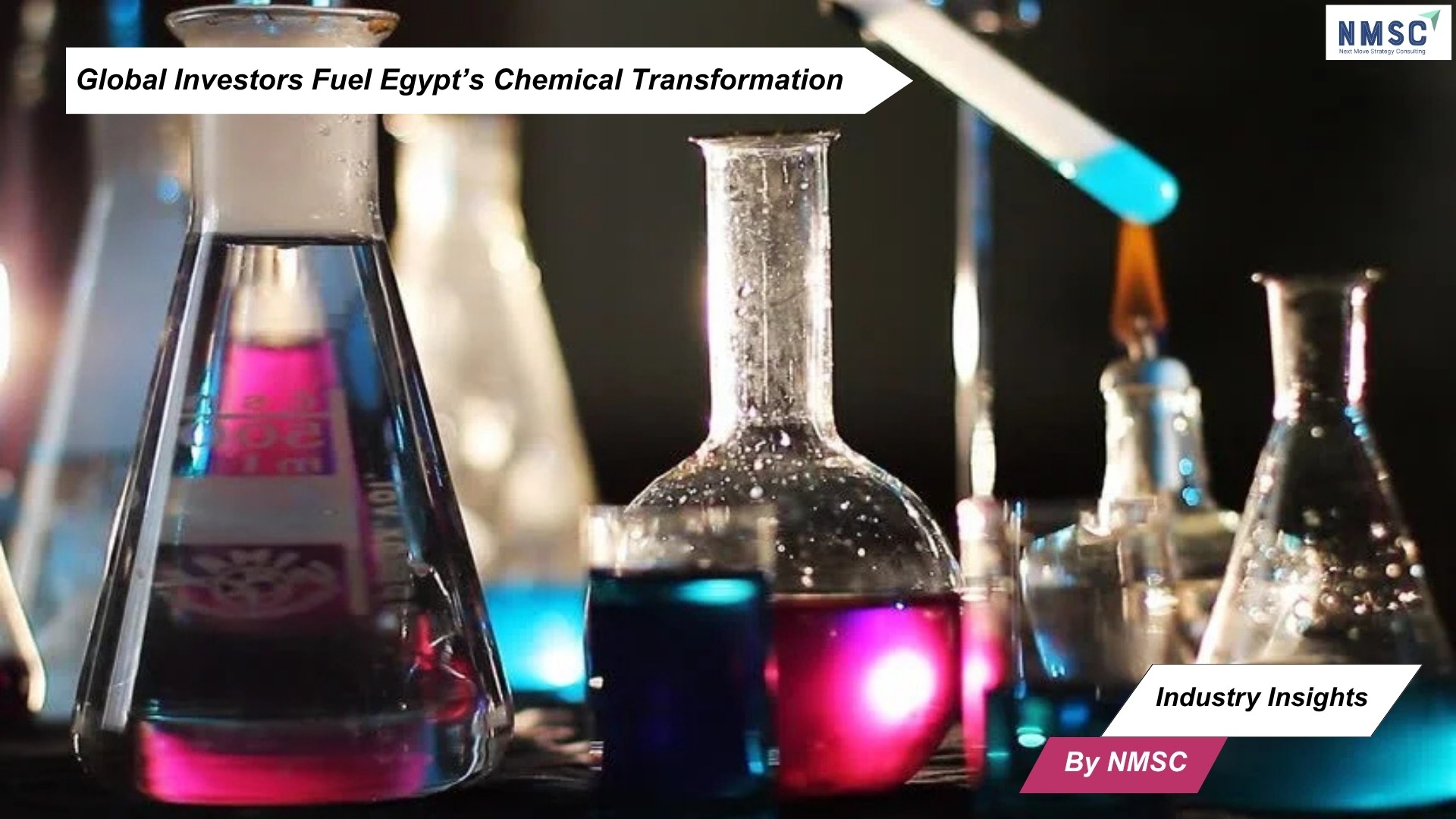Record Renewable Growth Driven by UAE Solar Projects
Published: 2025-11-18

Industry Insights from Next Move Strategy Consulting
A new report by the International Renewable Energy Agency (IRENA), released in partnership with the COP30 Brazilian Presidency and the Global Renewables Alliance, confirms that global renewable energy deployment achieved an unprecedented milestone in 2024. Total renewable capacity climbed to 582 GW, with solar energy emerging as the defining force behind this remarkable progress by contributing 452 GW of the total additions. The achievement reflects a growing international commitment to accelerating clean-energy transitions and brings the world one step closer to meeting the UAE Consensus target set at COP28 in Dubai — a target that calls for tripling global renewable capacity to 11.2 TW by 2030.
While the momentum is historic, the report stresses that the pace must intensify significantly. To stay aligned with the 2030 goal, the world must add 1,122 GW of renewable capacity every year for the remainder of the decade, underscoring both the opportunity and the urgency that shape the global energy landscape today.
UAE Emerges as a Central Force in the Global Clean-Energy Push
The United Arab Emirates continues to strengthen its position as a leader in renewable energy, advancing strategic mega-projects that demonstrate both technical expertise and long-term sustainability vision. At the forefront of this progress is the Mohammed bin Rashid Al Maktoum Solar Park, launched in 2012 under the directives of HH Sheikh Mohammed bin Rashid Al Maktoum and developed by the Dubai Electricity and Water Authority (DEWA).
The solar park, already one of the world’s largest renewable energy sites, has reached a production capacity of 3,860 MW. Its expansion plans have grown significantly, with the total projected capacity now expected to exceed 8,000 MW by 2030 — a major leap from the original 5,000 MW target. This upward revision reflects the rapid technological advancements and the UAE’s accelerating ambitions to reshape its energy infrastructure.
HE Saeed Mohammed Al Tayer, MD & CEO of DEWA, emphasized that the project not only enhances national energy capacity but also reinforces the UAE’s role in the global clean-energy landscape. He highlighted that clean energy already accounts for 21.5% of DEWA’s total capacity, a share that is set to rise to 36% by 2030, surpassing the original target of 25%. According to Al Tayer, the solar park will eventually help reduce more than 8.5 million tonnes of carbon emissions annually, underscoring its environmental significance.
Alignment With National Strategies and Pathway to a Clean-Energy Future
The concentrating solar power park serves as a foundational pillar for several major national frameworks, including the UAE Net Zero by 2050 Strategic Initiative, the Dubai Clean Energy Strategy 2050, and the Dubai Net Zero Carbon Emissions Strategy 2050. All three strategies share the ambitious goal of achieving 100% clean energy production in Dubai by mid-century, positioning the UAE as a pioneer of climate-focused national energy planning.
DEWA’s deployment of the Independent Power Producer (IPP) model, combined with strategic adoption of advanced technologies such as artificial intelligence, has played a pivotal role in amplifying project efficiency. One significant outcome of these innovations is the doubling of photovoltaic panel efficiency — rising from 11% to 24% — enabling substantial increases in energy output without requiring additional land.
A Living Innovation Hub for Solar and Storage Technologies
Beyond its monumental scale, the Mohammed bin Rashid Al Maktoum Solar Park operates as a cornerstone for innovation in clean energy. It functions as an ecosystem for real-world testing, piloting, and integration of emerging technologies across solar generation, energy storage, and power-system automation.
DEWA has already completed five phases of the project and is progressing on the sixth. Further expansion is underway through preparations for the seventh phase, for which DEWA has invited qualified international developers to submit proposals. This phase will introduce an additional 2,000 MW of photovoltaic capacity alongside a massive 1,400 MW battery energy storage system with a six-hour duration. Once completed, this installation will rank among the world’s largest combined solar-plus-storage projects, marking a transformational step in ensuring round-the-clock renewable power availability.
Next Move Strategy Consulting’s View
According to Next Move Strategy Consulting, the latest global findings and the UAE’s advancing clean-energy initiatives collectively reveal several defining trends shaping the future of the renewable energy market. The record-breaking addition of 582 GW in 2024 reflects strong global momentum, yet the requirement to add 1,122 GW annually through 2030 underscores the need for sustained, large-scale expansion. Concentrating Solar power remains the central force behind this growth, driven by cost-effective scalability, rapid deployment, and efficiency gains such as those achieved at the Mohammed bin Rashid Al Maktoum Solar Park. The UAE’s integrated approach—anchored by long-term national strategies, innovative models like IPP, and the adoption of advanced technologies—emerges as a replicable blueprint for other countries. Additionally, the market is shifting toward pairing large renewable installations with storage solutions, exemplified by the solar park’s planned 1,400 MW storage system designed to ensure long-duration reliability. With policy vision and strategic infrastructure planning proving essential, markets that synchronize governance, technology, and investment will be best positioned to lead global renewable energy expansion in the decade ahead.
A Defining Moment for the Global Renewable Energy Movement
The global rise in renewable capacity signals a turning point in the energy transition, and the UAE’s ambitious projects showcase what is possible through visionary planning and cutting-edge implementation. As 2030 approaches, both the international community and leading renewable-energy nations face a crucial task: converting momentum into sustained, scaled, and transformative deployment.
With innovation-led projects, rising clean-energy targets, and strategic national commitments, the UAE stands as a powerful demonstration of how countries can accelerate progress toward a cleaner, more resilient global energy future.
Source: DEWA
Prepared by: Next Move Strategy Consulting
About the Author
 Tania Dey is a highly experienced Content Writer and a passionate SEO Executive with a specialized focus on digital transformation, technology trends, and industry-focused insights. She has honed her expertise in creating compelling, data-driven content that not only enhances online visibility but also aligns with the ever-evolving demands of modern business landscapes. Her work spans a diverse range of industries, including technology, and digital services, enabling organizations to communicate their vision and value propositions effectively to both niches.
Tania Dey is a highly experienced Content Writer and a passionate SEO Executive with a specialized focus on digital transformation, technology trends, and industry-focused insights. She has honed her expertise in creating compelling, data-driven content that not only enhances online visibility but also aligns with the ever-evolving demands of modern business landscapes. Her work spans a diverse range of industries, including technology, and digital services, enabling organizations to communicate their vision and value propositions effectively to both niches.
About the Reviewer
 Sanyukta Deb is an accomplished Content Writer and Digital Marketing Strategist with extensive expertise in content strategy, SEO, and audience engagement. She specializes in building strong brand visibility through data-driven campaigns and impactful, value-added researched content. With a passion for creativity and innovation, she blends strategic thinking with design and communication to craft meaningful digital experiences. Over the years, she has contributed cross-functional marketing projects, driving measurable impact and audience engagement.
Sanyukta Deb is an accomplished Content Writer and Digital Marketing Strategist with extensive expertise in content strategy, SEO, and audience engagement. She specializes in building strong brand visibility through data-driven campaigns and impactful, value-added researched content. With a passion for creativity and innovation, she blends strategic thinking with design and communication to craft meaningful digital experiences. Over the years, she has contributed cross-functional marketing projects, driving measurable impact and audience engagement.
















Add Comment